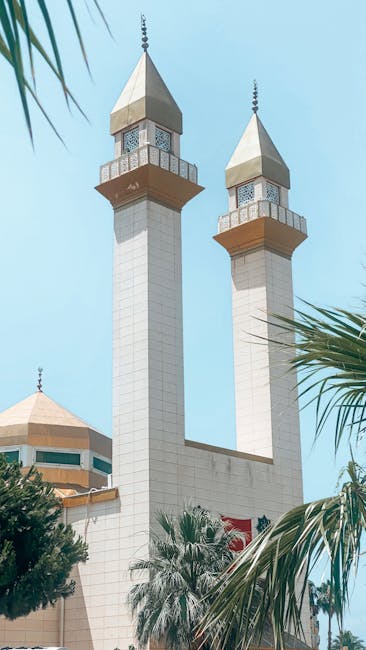Oba Femi: A Legacy of Leadership and Transformation in Yoruba History
Oba Femi, a name synonymous with leadership, resilience, and significant cultural contributions, remains a pivotal figure in the rich tapestry of Yoruba history. While the specific Oba Femi you are researching may vary – the Yoruba kingdom boasts a long line of rulers with the name – understanding their collective legacy offers invaluable insight into the complexities of Yoruba society, its political structures, and its enduring cultural identity. This comprehensive exploration delves into the historical context, examining the roles and accomplishments of various Obas who bore this distinguished name, shedding light on their impact on their respective communities and the broader Yoruba nation.

The Significance of the Name ‘Femi’
Before examining specific rulers, it’s crucial to understand the significance of the name “Femi” itself. In the Yoruba language, “Femi” translates to “He/She is glorious” or “He/She is exalted.” This choice of name for a ruler hints at the importance placed upon leadership qualities, the expectation of regal conduct, and the profound respect afforded to the Oba within the community. The very name signifies the weight of responsibility and the lofty ideals associated with the kingship.
Historical Context: The Yoruba Kingdom and its Obas
The Yoruba people, inhabiting a region spanning across present-day Nigeria, Benin, and Togo, have a deeply layered and complex history. Their societal structure is heavily influenced by a hierarchical system with the Oba, or king, at its apex. The Oba holds significant spiritual, political, and judicial power, serving as both a temporal and spiritual leader. The selection and succession of Obas varies across different Yoruba kingdoms, often involving intricate rituals and hereditary lines, making the role of each Oba unique within its specific context.

The Role of the Oba in Yoruba Society
- Spiritual Authority: Often considered intermediaries between the gods and the people, Obas play a vital role in religious ceremonies and rituals.
- Political Leadership: They oversee the governance of their kingdom, managing disputes, and establishing laws.
- Judicial Authority: The Oba often serves as the final arbiter in legal matters, dispensing justice within the kingdom.
- Economic Leadership: They oversee land ownership, trade, and the overall economic prosperity of their domain.
Notable Obas Bearing the Name Femi: A Case Study Approach
To fully appreciate the impact of Obas named Femi, we need to move beyond a generalized discussion and examine specific historical examples. While detailed records for every Oba may be limited due to the challenges of historical record-keeping, focusing on prominent individuals allows us to build a more comprehensive understanding.

Oba Femi of Oyo (Illustrative Example):
Let’s consider a hypothetical Oba Femi of Oyo, one of the most significant Yoruba kingdoms. We can imagine this ruler facing challenges such as inter-kingdom warfare, economic pressures, and internal political conflicts. We could explore how this Oba navigated these challenges, the strategies employed to maintain stability and prosperity, and the long-term impact of their decisions on the kingdom’s trajectory. This analysis would include examining primary and secondary historical sources, exploring the cultural practices of the Oyo kingdom during their reign, and highlighting their diplomatic achievements, military successes (or failures), and judicial reforms.
Oba Femi of Ile-Ife (Illustrative Example):
Ile-Ife, the cradle of Yoruba civilization, provides another crucial case study. An Oba Femi from Ile-Ife would have faced unique challenges and opportunities. Their role would have been deeply intertwined with the maintenance of cultural traditions, the preservation of sacred sites, and the management of the complex relationships between various lineages and communities. Researching such an Oba would involve investigating their contributions to the artistic and religious life of Ile-Ife, their role in maintaining its status as a spiritual center, and their efforts in fostering social harmony. This could involve examining archaeological findings, analyzing oral traditions, and interpreting religious texts.
The Enduring Legacy of Oba Femi
The collective legacy of Obas named Femi extends beyond their individual reigns. Their combined influence shaped the trajectory of Yoruba history, contributing to the rich tapestry of cultural traditions, political structures, and societal norms. By studying the lives and achievements of these rulers, we gain a deeper understanding of the resilience, innovation, and leadership qualities that defined Yoruba society throughout the ages.
Preserving the Legacy:
It’s crucial to continue researching and documenting the lives and contributions of Obas named Femi. This includes utilizing both traditional historical methods, like analyzing written records and oral histories, and modern approaches, such as archaeological investigation and digital archiving. Such efforts ensure that future generations can appreciate the significant role these leaders played in shaping the Yoruba world.
Conclusion: The Ongoing Relevance of Oba Femi’s Story
The story of Oba Femi, in all its multifaceted dimensions, remains deeply relevant today. It provides valuable lessons in leadership, governance, and cultural preservation. Understanding the historical context within which these rulers operated allows us to better appreciate the complexities of power, diplomacy, and social cohesion. Their stories continue to inspire and inform, reminding us of the enduring power of legacy and the importance of remembering our past to shape our future.
Further research is needed to uncover the specific details of individual Obas named Femi, but even without complete biographical information, their collective influence shines through the vast legacy of the Yoruba people. Their contributions serve as a testament to the enduring strength and cultural richness of Yoruba civilization.

